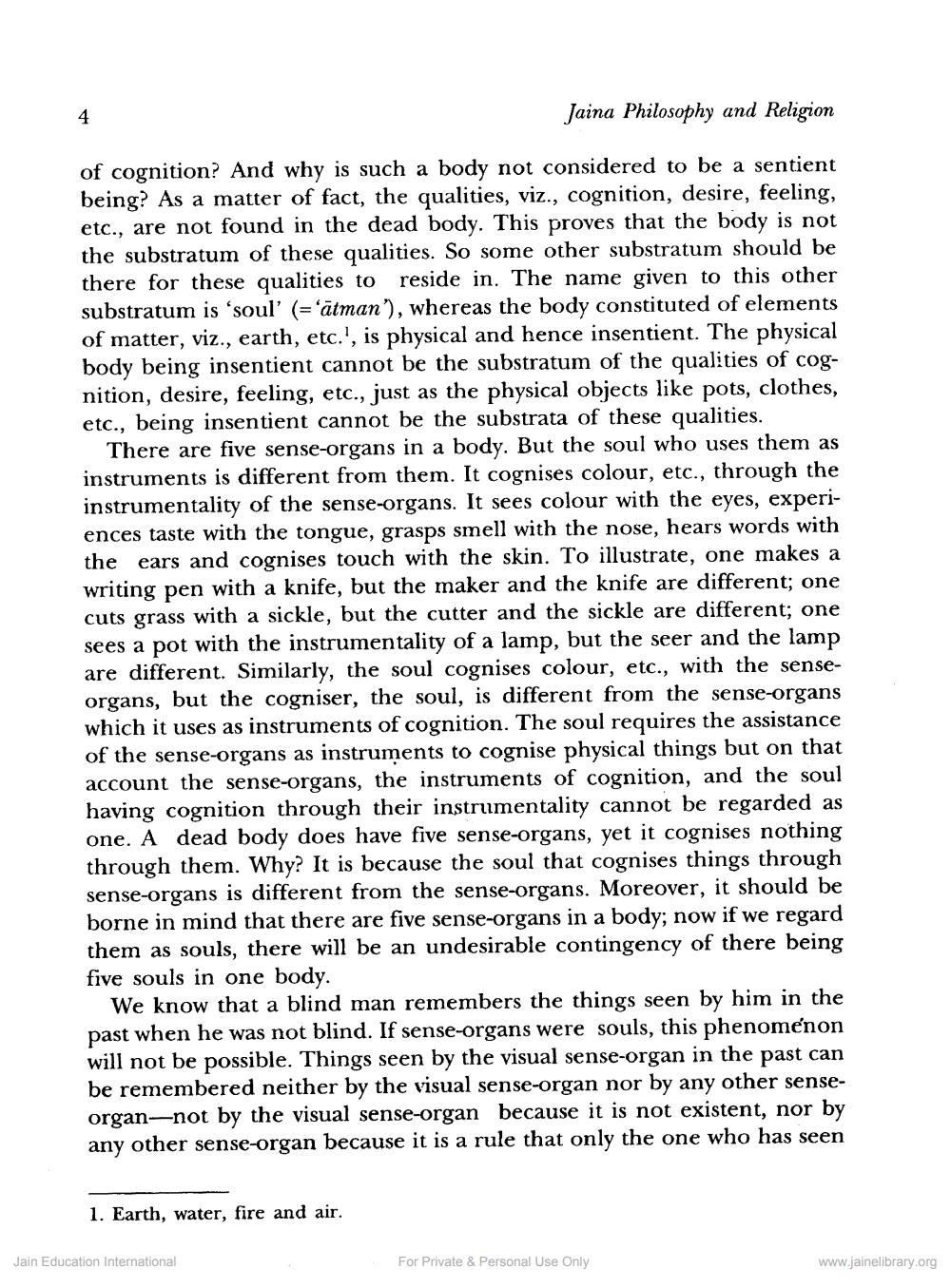________________
Jaina Philosophy and Religion
of cognition? And why is such a body not considered to be a sentient being? As a matter of fact, the qualities, viz., cognition, desire, feeling, etc., are not found in the dead body. This proves that the body is not the substratum of these qualities. So some other substratum should be there for these qualities to reside in. The name given to this other substratum is 'soul' (='ātman'), whereas the body constituted of elements of matter, viz., earth, etc.!, is physical and hence insentient. The physical body being insentient cannot be the substratum of the qualities of cognition, desire, feeling, etc., just as the physical objects like pots, clothes, etc., being insentient cannot be the substrata of these qualities.
There are five sense-organs in a body. But the soul who uses them as instruments is different from them. It cognises colour, etc., through the instrumentality of the sense-organs. It sees colour with the eyes, experiences taste with the tongue, grasps smell with the nose, hears words with the ears and cognises touch with the skin. To illustrate, one makes a writing pen with a knife, but the maker and the knife are different; one cuts grass with a sickle, but the cutter and the sickle are different; one sees a pot with the instrumentality of a lamp, but the seer and the lamp are different. Similarly, the soul cognises colour, etc., with the senseorgans, but the cogniser, the soul, is different from the sense-organs which it uses as instruments of cognition. The soul requires the assistance of the sense-organs as instruments to cognise physical things but on that account the sense-organs, the instruments of cognition, and the soul having cognition through their instrumentality cannot be regarded as one. A dead body does have five sense-organs, yet it cognises nothing through them. Why? It is because the soul that cognises things through sense-organs is different from the sense-organs. Moreover, it should be borne in mind that there are five sense-organs in a body; now if we regard them as souls, there will be an undesirable contingency of there being five souls in one body.
We know that a blind man remembers the things seen by him in the past when he was not blind. If sense-organs were souls, this phenomenon will not be possible. Things seen by the visual sense-organ in the past can be remembered neither by the visual sense-organ nor by any other senseorgan—not by the visual sense-organ because it is not existent, nor by any other sense-organ because it is a rule that only the one who has seen
1. Earth, water, fire and air.
Jain Education International
For Private & Personal Use Only
www.jainelibrary.org




